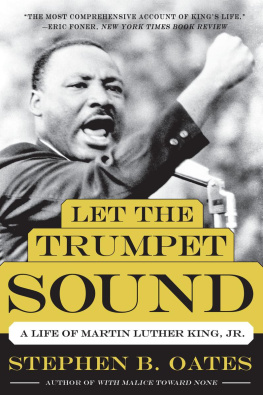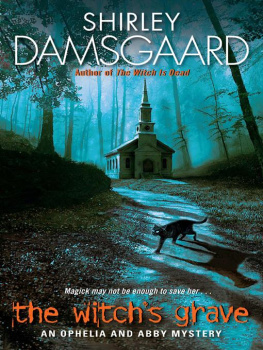Martin Stephen - The galleon's grave
Here you can read online Martin Stephen - The galleon's grave full text of the book (entire story) in english for free. Download pdf and epub, get meaning, cover and reviews about this ebook. genre: Detective and thriller. Description of the work, (preface) as well as reviews are available. Best literature library LitArk.com created for fans of good reading and offers a wide selection of genres:
Romance novel
Science fiction
Adventure
Detective
Science
History
Home and family
Prose
Art
Politics
Computer
Non-fiction
Religion
Business
Children
Humor
Choose a favorite category and find really read worthwhile books. Enjoy immersion in the world of imagination, feel the emotions of the characters or learn something new for yourself, make an fascinating discovery.

- Book:The galleon's grave
- Author:
- Genre:
- Rating:3 / 5
- Favourites:Add to favourites
- Your mark:
- 60
- 1
- 2
- 3
- 4
- 5
The galleon's grave: summary, description and annotation
We offer to read an annotation, description, summary or preface (depends on what the author of the book "The galleon's grave" wrote himself). If you haven't found the necessary information about the book — write in the comments, we will try to find it.
The galleon's grave — read online for free the complete book (whole text) full work
Below is the text of the book, divided by pages. System saving the place of the last page read, allows you to conveniently read the book "The galleon's grave" online for free, without having to search again every time where you left off. Put a bookmark, and you can go to the page where you finished reading at any time.
Font size:
Interval:
Bookmark:
Martin Stephen
The galleon's grave
Prologue
March 24th, 1587
Death comes from such random throws of the dice. Thin streaks of grey light signalled dawn bleached across the black, flat Cambridge landscape. The horses sensed their owner's fear, were restive in the yard, hoofs clattering the cobbles, snorting so that the mist of their breath in the cold air joined with that of the panting men charged with their care. The lanterns swung wildly, the gloom still deep enough for them to cast flickering shadows on the walls, highlighting in passing the sheen of sweat on the faces and arms of the ostlers. You could smell the sweat, the strangely warm tang of horseflesh on the cold morning air, and the stink of the dung the Spaniard's horse had dropped.
If the Spaniard had chosen to leave Cambridge as night fell, when he first heard his news, he might have lived. As it was, he gambled that he had time enough, time for a decent supper, time for a few hours' sleep in a clean bed. He made the sensible decision, and it killed him, used up the time he had on earth. After all, few men rode out at dark. The finest horse can see no better at night than a man, and the appalling mud tracks that passed for English roads were quite capable of drowning a man and his horse in the potholes that seemed to penetrate the centre of the earth. Better to make the break at dawn, and hope for clear skies in this interminably damp country. A man determined to find his destiny did not skulk out like a traitor emerging from a dungeon, eyes closed shut from the danger of light A man and a Spanish man above all rode out with his eyes all-seeing. In command. In charge.
The two Spanish servants he had brought with him on his mission to England had succumbed to one of the fevers this Fen-blasted town of Cambridge seemed to breed like a peasant woman in Seville bred children. Their English replacements were shifty, reluctant in their duties. What Englishman could blame them when Spain seemed set on destroying England? In fact, only one of the Spaniard's English recruits was with him that morning, a burly man past middle-age but with a quiet authority that made him the only one capable of calming the baggage horses. What was his name? The Spaniard found it difficult to remember the names of those of common birth, and was increasingly irritated by the English habit of treating servants as if they were real people. It was as if they were ashamed of rank. Nevertheless, the Spaniard smiled patronisingly at the man, thanked him for his calm in loading and quieting the horses (when in Rome; or Cambridge), and dug his spurs unnecessarily into the side of his own fine mount. He had given gold to the inn, more than enough to settle his debts. Pray to God he might never see this miasmic hole Cambridge again. He was away at last. Away to Spain. Away to tell his masters the truth of the fools they had been made to become.
The Spaniard's spirits rose as he felt the thrumming of the horses' hoofs beneath him. Even this early the smoke from the morning fires lay heavy on the ground, stinging the nostrils. His horse flung up mud from the unpaved streets, as if anxious to clear the stench of the town too. Soon they were clear of the poor houses and the stone and brick arrogance of the Colleges. He had chosen to escape through Grantchester meadows. Even he had felt his heart touched here, where the lush grass backed on to the wide, flat river, an image of pastoral bliss. And if one let one's eyes rise, there was the soaring vision of King's College Chapel.
It was the lack of noise that caused him to slow down. Suddenly the Spaniard realised his servant was no longer with him. The man, and the baggage horses he controlled, had veered off for some reason. He was on his own, pounding through the meadows. Then he heard other hoofs, a single horse racing towards him. He turned, lashing his horse with his whip, and the fiery pain of pure fear shot across his chest as he saw who it was pursuing him. The servant had reined in the baggage horses and was waiting quietly by a little copse of trees. From out of those trees two men had erupted, one a burly man on a squat but powerful horse, the other a slighter figure, superbly mounted on a grey. The grey was leaping ahead. The Spaniard knew who its rider was, guessed in an instant and far too late that the English servant had been in the pay of this young man all along, had warned his master of the Spaniard's departure.
Real fear then clawed at the Spaniard's belly, yet he was no coward. He yanked his horse round by brute force, drew the sword at his side and ran at the young man on the grey, sword extended like a lance. If he had hoped to surprise his adversary, he miscalculated. In a second his opponent had extended his sword, and the two men rode at each like medieval knights at the joust. The Spaniard fixed his eyes on the Englishman's heart, determined to plunge his sword into it. Seconds before they met, he made the mistake of looking up into the young man's eyes. They were cold, hard, and his sword seemed to be pointing directly between the Spaniard's eyes.
He had him! The Spaniard exulted, feeling his blade heading inexorably towards his enemy's heart. Yet at the very last possible second, the young man swayed his body aside with an impossible athleticism and sank his own sword into the Spaniard's neck.
The shock of contact should have ripped the sword out of the Englishman's hand, yet somehow he held on to it. His sword cut through the sinew and muscle of the Spaniard's neck until it met cold air, half decapitating the foreigner whose eyes opened wide in surprise. He toppled forward slowly on the still-galloping horse, ludicrously, comically, arm still outstretched holding his sword.
Then, as if time had been slowed down, the sword dropped from the nerveless hand, and the Spaniard slumped over the side of the horse, foot caught in the stirrup. His body and half-severed head bounced on the hard earth until his horse felt the drag on its side and reluctantly came to a halt.
It was pleasantly cool in the meadows of Grantchester, the sky a hard blue. The spring breeze fluttered over the grass, the smell overpowering as the sun gently warmed the earth with the early morning heat. The river burbled cheerfully nearby, neither the angry flood torrent of winter nor the sludgy, torrid stream of high summer. The birds were singing their hearts out at having survived the winter, the beauty of the sound hiding the reality that their song was a savage defence of their territory. It was Henry Gresham's birthday, and-he, the rider of the grey, had just killed a man.
The body lay in the grass, distorted in death, mouth agape in a silent scream. The man's complexion was swarthy, and from behind the torn doublet a set of hidden rosary beads could be seen. He was only a Spanish spy, of course. Was that meant to make it better? Gresham was handsome and something in his stance said that he knew it. He was tall, thin-hipped and broad shouldered, a shock of black hair over a striking and chiselled face, sweat-stained. And now he was a murderer, standing over his victim like a statue carved out of marble.
Mannion, an oak-tree of a man, perhaps five years older, stood silently by Gresham's side as his young master threw up a poisonous yellow bile, obscenely splashing the rich green grass. Mannion waited patiently. Finally, when there was nothing left in the stomach, he spoke. 'Stones, and some rope.' Gresham looked up.
'You can't take the body home,' Mannion said flatly, 'and you can't leave him here. There's stones on the bank. There's rope in my saddlebag.'
Gresham stared blankly at his servant. It was always like this, Mannion knew, for the first four or five men you killed. The excitement that drove away all conscience and feeling, the blood* lust of combat all gave way to sickness, and the numb nausea.
Font size:
Interval:
Bookmark:
Similar books «The galleon's grave»
Look at similar books to The galleon's grave. We have selected literature similar in name and meaning in the hope of providing readers with more options to find new, interesting, not yet read works.
Discussion, reviews of the book The galleon's grave and just readers' own opinions. Leave your comments, write what you think about the work, its meaning or the main characters. Specify what exactly you liked and what you didn't like, and why you think so.





